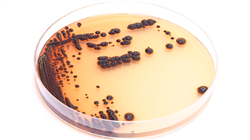University certificate
The world's largest faculty of pharmacy”
Description
In this 100% online Postgraduate certificate, you will delve into the mechanisms of bacterial resistance, both acquired and intrinsic, essential for the development of effective strategies against complex infections”

The World Health Organization (WHO) continues its fight against Multidrug-Resistant Bacteria, highlighting the need to develop new treatments and promote international cooperation to curb the spread of these resistances, and emphasizing a comprehensive approach to Public Health that includes access to quality measures to prevent, diagnose and treat infections effectively.
This is how this Postgraduate certificate is born, which will delve into the mechanisms of acquired resistance of Multidrug-Resistant Bacteria, such as the acquisition of resistance genes, mutations and plasmid acquisition. Mechanisms of intrinsic resistance will also be covered, including entry blockade, target modification, inactivation and antibiotic expulsion.
In addition, the study plan will include a detailed analysis of the chronology and evolution of antibiotic resistance, beginning with the initial discovery and moving through plasmid evolution and current trends. Therefore, the impact of resistance on human pathology will be discussed, highlighting the increased mortality and morbidity, the impact on Public Health and the associated economic cost. In addition, the list of highly dangerous bacteria according to WHO, classified into critical, high and medium priorities, will be updated.
Finally, the causes of antibiotic resistance will be addressed, considering the lack of new antibiotics, socioeconomic factors, health policies and the influence of international travel and global trade. Likewise, the use and abuse of antibiotics in the community will be analyzed, from prescription to misuse, and the global statistics of antibiotic resistance in different regions of the world will be reviewed.
In this way, TECH has implemented a complete and fully online university program, which only requires an electronic device with Internet connection to access all the didactic materials. Additionally, it is based on the revolutionary Relearning methodology, consisting of the reiteration of key concepts to ensure an optimal and organic assimilation of the contents.
You will get an update on the most dangerous bacteria, according to the WHO list, equipping you with the latest scientific evidence on critical pathogens. With all TECH's quality guarantees!"
This Postgraduate certificate in Multidrug-Resistant Bacteria in Human Pathology contains the most complete and up-to-date scientific program on the market. The most important features include:
- The development of practical cases presented by experts in Microbiology, Medicine and Parasitology
- The graphic, schematic and eminently practical contents with which it is conceived gather scientific and practical information on those disciplines that are indispensable for professional practice
- Practical exercises where self-assessment can be used to improve learning.
- Its special emphasis on innovative methodologies
- Theoretical lessons, questions to the expert, debate forums on controversial topics, and individual reflection assignments
- Content that is accessible from any fixed or portable device with an Internet connection
You will delve into future perspectives and strategies to mitigate the problem of Multidrug-Resistant Bacteria, including international actions to curb the spread of antibiotic resistance”
The program’s teaching staff includes professionals from the sector who contribute their work experience to this specializing program, as well as renowned specialists from leading societies and prestigious universities.
The multimedia content, developed with the latest educational technology, will provide the professional with situated and contextual learning, i.e., a simulated environment that will provide immersive education programmed to learn in real situations.
This program is designed around Problem-Based Learning, whereby the professional must try to solve the different professional practice situations that arise during the course. For this purpose, students will be assisted by an innovative interactive video system created by renowned and experienced experts.
You will analyze how bacteria acquire resistance genes, undergo mutations, and obtain plasmids that contribute to acquired resistance, through the best teaching materials in the academic market.

You will examine the most critical multi-resistant human pathogens, such as Acinetobacter baumannii, Pseudomonas aeruginosa and Staphylococcus aureus, among others, thanks to an extensive library of multimedia resources.
Syllabus
This academic program will delve into the mechanisms of acquired and intrinsic resistance to antibiotics, such as the acquisition of resistance genes, mutations and plasmid acquisition, and antibiotic entry blockade and inactivation. In addition, historical and evolutionary aspects of resistance will be addressed, providing a chronological perspective, from the discovery of resistance, to current trends. A module will also be dedicated to the identification and management of multi-resistant pathogens, such as Acinetobacter baumannii and Pseudomonas aeruginosa, among others.

The content of the Postgraduate Certificate has been carefully designed to provide pharmacists with a comprehensive and up-to-date understanding of the challenges associated with bacterial resistance"
Module 1. Multidrug-Resistant Bacteria in Human Pathology
1.1. Mechanisms of Acquired Resistance to Antibiotics
1.1.1. Acquisition of Resistance Genes
1.1.2. Mutations.
1.1.3. Acquisition of Plasmids
1.2. Mechanisms of Intrinsic Resistance to Antibiotics
1.2.1. Blockage of Antibiotic Entry
1.2.2. Modification of the Antibiotic Target
1.2.3. Inactivation of the Antibiotic
1.2.4. Antibiotic Expulsion
1.3. Chronology and Evolution of Antibiotic Resistance
1.3.1. Discovery of Antibiotic Resistance
1.3.2. Plasmids
1.3.3. Evolution of Resistance
1.3.4. Current Trends in the Evolution of Antibiotic Resistance
1.4. Antibiotic Resistance in Human Pathology
1.4.1. Increased Mortality and Morbidity
1.4.2. Impact of Resistance on Public Health
1.4.3. Economic Cost Associated with Antibiotic Resistance
1.5. Multidrug-Resistant Human Pathogens
1.5.1. Acinetobacter Baumannii
1.5.2. Pseudomonas Aeruginosa
1.5.3. Enterobacteriaceae
1.5.4. Enterococcus Faecium
1.5.5. Staphylococcus Aureus
1.5.6. Helicobacter Pylori
1.5.7. Campylobacter Spp
1.5.8. Salmonellae
1.5.9. Neisseria Gonorrhoeae
1.5.10 Streptococcus Pneumoniae
1.5.11. Hemophilus Influenzae
1.5.12. Shigella Spp
1.6. Bacteria Highly Dangerous to Human Health: Update of the WHO List
1.6.1. Critical Priority Pathogens
1.6.2. High Priority Pathogens
1.6.3. Pathogens with Medium Priority
1.7. Analysis of the Causes of Antibiotic Resistance
1.7.1. Lack of New Antibiotics
1.7.2. Socioeconomic Factors and Health Policies
1.7.3. Poor Hygiene and Sanitation
1.7.4. Health Policies and Antibiotic Resistance
1.7.5. International Travel and Global Trade
1.7.6. Dispersal of High-Risk Clones
1.7.7. Emerging Pathogens with Resistance to Multiple Antibiotics
1.8. Antibiotic Use and Abuse in the Community
1.8.1. Prescription
1.8.2. Acquisition
1.8.3. Misuse of Antibiotics
1.9. Current Status of Antibiotic Resistance in the World
1.9.1. Global Statistics
1.9.2. Central and South America
1.9.3. Africa
1.9.4. Europe
1.9.5. North America
1.9.6. Asia and Oceania
1.10. Perspectives on Antibiotic Resistance
1.10.1. Strategies to Mitigate the Problem of Multidrug-Resistance
1.10.2. International Actions
1.10.3. Actions at the Global Level

The teaching materials of this program, elaborated by these specialists, have contents that are completely applicable to your professional experiences"
Postgraduate Certificate in Multidrug-Resistant Bacteria in Human Pathology
This Postgraduate Certificate in Multidrug-Resistant Bacteria in Human Pathology created by TECH Global University is a specialized qualification aimed at health professionals who wish to acquire advanced knowledge on the clinical management and prevention of infections caused by bacteria resistant to multiple antibiotics. This program, offered in 100% online modality, provides an in-depth understanding of multidrug-resistant bacteria and their impact on human health. During the course, you will explore the mechanisms of bacterial resistance, the epidemiology of multidrug-resistant infections and current strategies for their treatment and control. In addition, key topics such as identification of resistant strains, rational use of antimicrobials and infection prevention or control measures in clinical settings will be addressed. An outstanding feature of this course is its focus on clinical practice and the application of updated knowledge in microbiology and human pathology. Therefore, you will learn to interpret microbiological tests, design effective therapeutic schemes and collaborate in epidemiological surveillance programs to address the problem of multidrug-resistant bacteria.
Specialize in multidrug-resistant bacteria in human pathology
The online modality of the course provides flexibility and accessibility, allowing you to access the content from any location and at convenient times. Through an advanced educational platform, you will benefit from interactive resources and updated didactic material on clinical microbiology and antimicrobial resistance. The course is led by a team of professionals with extensive experience in the management of multidrug-resistant bacterial infections in the clinical setting and human pathology research. Their practical experience and up-to-date knowledge ensure high quality training, relevant to the current demands in the healthcare field. Enrolling in this Postgraduate Certificate is a strategic decision for healthcare professionals who wish to specialize in the management of complex infections and contribute to the control of antimicrobial resistance. This advanced program provides the tools and knowledge necessary to effectively address the challenge of multidrug-resistant bacteria in the human pathology setting.







